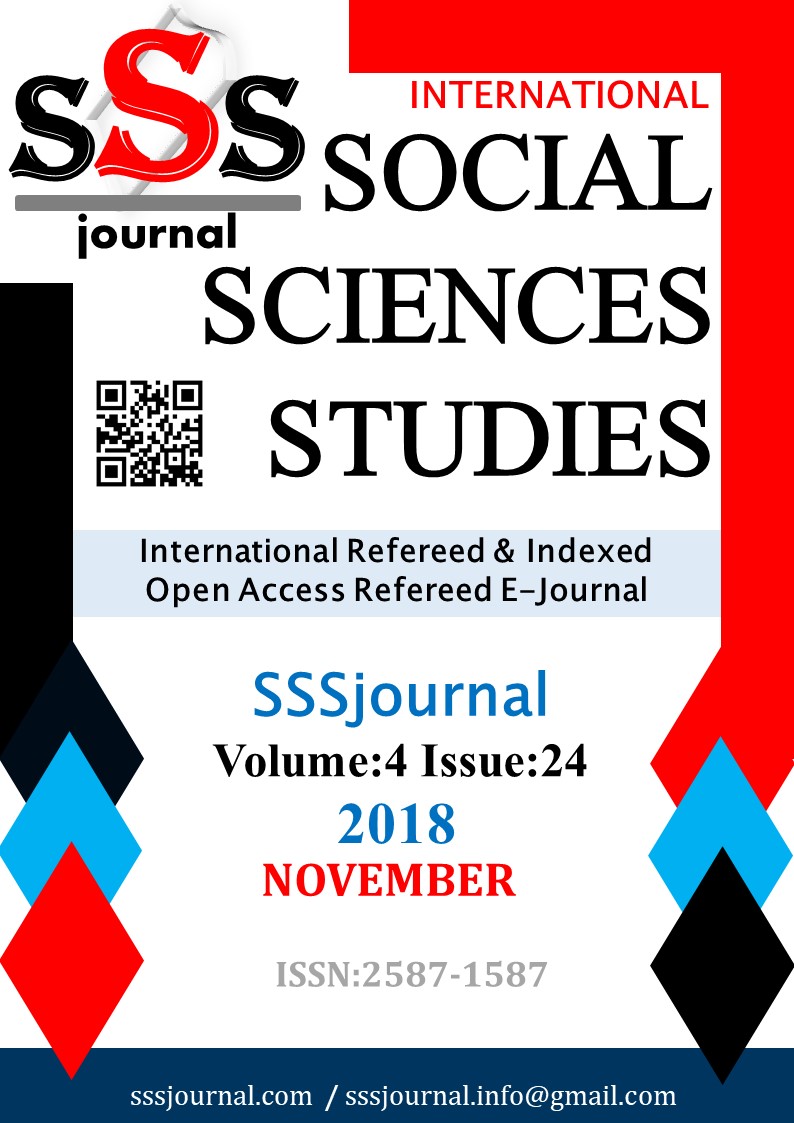Author :
Abstract
Turizm ve güçlü bir ekonomi arasında önemli bir ilişki vardır. Her ikisi birbirine bağlı olup, turizmin, milli ekonominin desteklenmesinde önemli bir kaynak olduğu düşünülmektedir. Güçlü bir ekonomi, turizmi de güçlü bir şekilde desteklemektedir. Bu çalışmada, turizmin etkisi, turizm kaynakları ve turizmi desteklemede kullanılan yöntemler ele alınmıştır. Sektörler arasında rekabet yaratma ve petrolden elde edilen gelire bir alternatif kaynak oluşturma gayretinin yanı sıra, Libya hükümetinin hem kamu hem de özel turizm sektörünün desteklenmesindeki rolüne dikkat çekmek de bunlar arasında yer almaktadır. Çalışma, Libya’nın doğusundaki Yeşil Dağ bölgesinde ve özellikle de Suse ve Cyrene’de turizmin ekonomi üzerindeki rolü ve devletin, turizm sektörünü desteklemedeki rolü ile Libya’da turizmin geleceği ve mevcut iç alt-yapının çok sayıda turisti çekmeye yeterli olup olmadığı hakkında turizm yetkililerine ve sokaktaki insanlara yöneltilen sorulara odaklanmıştır. Bununla birlikte, devrim sonrası ortaya çıkan kargaşadan ve birçok veri tabanının kaybolmasından ötürü, son istatistiksel verilere ulaşmakta zorlandığımı belirtmeliyim. Ülkedeki güvenlik sorunundan ve hali hazırda devam etmekte olan güvenlik durumundan ötürü bir yerden başka bir yere gitme konusunda yaşadığım güçlük, durumu daha da zorlaştırmıştır.
Keywords
Abstract
There is pertinent relationship between tourism and the existence of a strong economy. Each one of them depends on the other because tourism is considered as an important resource to support the national economy. Moreover, a strong economy contributes to the strengthening of the tourism. The study includes the effect of tourism, its resources and the methods used to support it. In addition to creating competition between sectors and try to provide an alternative source of income from oil, the study also aims at highlighting the role of government in Libya to support the tourism sector, whether public or private. The study focusing on the Green Mountain area in eastern Libya, specifically Suse and Cyrene, attempts to obtain information from the tourism officials and the people on the street about the role of tourism in the economy and the state's role in supporting the tourism sector and the future outlook for tourism in Libya and whether intra-existing infrastructure is sufficient to attract the largest number of tourists through questionnaires. But it should be noted that the recent data statistics are difficult to get due to the chaos that occurred after the revolution and owing to the disappearance of many databases. Moreover, it was difficult to move from one place to another because of the security situation in the country and current events in the country.
Keywords
- Baira, A. (2007). Public Policies for Administrative Development in Libya - a holistic perspective. Paper
- Bell, J. (2014). Doing Your Research Project: A guide for first-time researchers. McGraw-Hill Education
- Busby, G. (1993). Development in computer reservation systems and global distribution systems.
- Association of Open University Graduates Journal, (1992/93), 11-16.
- Eccles, G. (1995). Marketing, sustainable development and international tourism. International Journal of
- Kim, H. J., & Chen, M. H. (2006). Tourism expansion and economic development: The case of Taiwan.
- Makki, G. (1997). Parks and Resorts in Benghazi. The current situation of supply and demand on Parks and
- Omran, T. (1983). Tourism and Development in Libya. Conference on Economic Development in Libya,
- Punch, K. F., & Oancea, A. (2014). Introduction to research methods in education. Sage.
- Safieddin, T. (2001). Elements of the development of tourism in Libya. The National Library, Benghazi,
- Libya, 2001.
- Saif-Aleslam, M. (2002). Libya and the twenty-first century. A translation of the Master Thesis, University
- of California, publications Dar Almha for Culture and Arts, Beirut, 2002.
- Salem, M., Isbitp, A., & Hamuda, A. (2008). Constituents of desert tourism in Libya. Conference on
- Sustainable Development in Libya, 28 - 29/6/2008, Garyounis University, Benghazi.
- Teye, V. B. (1999). Commentary: Tourism plans and planning challenges in Ghana. Tourism Geographies, 1
- Wearing, S., & Neil, J. (1999). Ecotourism: Impacts, Potentials and Possibilities. Reed Educational and
- Wilkinson, L. (1999). Statistical methods in psychology journals: Guidelines and explanations. American
- WTO, (1998, 2000, 2002, 2004, 2005,2007,2008,2010,2015). Site of the World Tourism Organization on the





